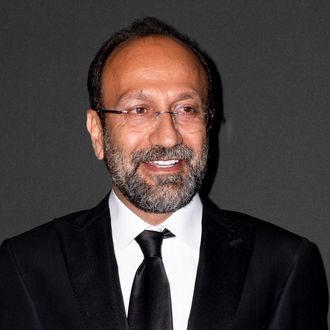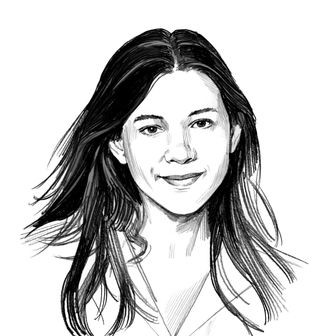
Update, Friday, November 4: A spokesperson for The New Yorker reached out to Vulture with a statement defending its reporting in response to comments made by Asghar Farhadi’s attorney. It reads, “Rachel Aviv wrote a fair and factual account, supported by numerous on-the-record sources and confirmed by our fact checkers. She spoke extensively with Mr. Farhadi — more than a dozen hours worth of interviews — and the article examines his perspective at length and reflects his substantial input. The New Yorker stands by this story.”
On November 2, Jonathan Gardner, Farhadi’s attorney, provided Vulture with a response to the October 31 New Yorker story, which profiles multiple students and colleagues who have accused the venerated director of plagiarism and misattribution. On Farhadi’s behalf, Gardner says Aviv, the article’s writer, “has dismissed and omitted almost all of Mr. Farhadi’s comments and documents provided to her about the claims referenced in the article. Mr. Farhadi has successfully collaborated with other artists for twenty-five years; Ms. Aviv has uncovered a handful of people with complaints that they were not thanked enough.”
Gardner denies Azadeh Masihzadeh’s account of events and sticks to Farhadi’s argument that he was the one who gave his students, including Masihzadeh, the idea that led to her documentary in the first place. Masihzadeh claims that Farhadi’s 2021 film, A Hero, was lifted from a documentary she made as an assignment for his filmmaking workshop. Gardner refers to the dispute as “a common crediting issue that is routine in Hollywood every day.”
Original story published follows.
An October 31 New Yorker story features multiple Iranian filmmakers and creatives claiming that Asghar Farhadi, venerated director of films including A Separation and A Hero, stole ideas from students at his filmmaking workshops. These additional testimonies come as a plagiarism lawsuit filed by Farhadi’s former student Azadeh Masihzadeh awaits a final verdict in appellate court in Iran.
Masihzadeh claims in her lawsuit that Farhadi based 2021’s A Hero on a documentary project she’d made for his film class in 2014 under misleading circumstances. She told The New Yorker that during another filmmaking workshop in 2019, Farhadi had used his status in the industry to pressure her to sign a declaration stating that her documentary, All Winners, All Losers, was “based on Mr. Asghar Farhadi’s proposal and idea that he shared in his documentary-filmmaking workshop.” Since an initial magistrate ruling in Masihzadeh’s favor as part of the ongoing case, she says she has received hundreds of messages attacking her for coming after Farhadi. The two await a final ruling.
Now, more people have come forward claiming that Farhadi used their ideas without attribution for his own, higher-profile projects. Another former student, Mostafa Pourmohammadi, who took a screenwriting workshop with Farhadi in 2009, told The New Yorker that A Separation has a very similar plotline to a short film he’d turned in for the class. “I had some expectation that a professor, if he gets a good idea from a student, will also support that student and try to help him find his way into the field,” Pourmohammadi said, adding that he was not credited for or informed of A Separation’s plot and that it “was both an honor and a betrayal.” Farhadi countered that he had portrayed similar subject matter in his own film Fireworks Wednesday and told reporter Rachel Aviv that perhaps Pourmohammadi’s plot had come from that movie.
Another filmmaker, director Mani Haghighi, claims that Farhadi’s film The Past was based on a story from his own life that he’d told Farhadi in detail (the two were friends and collaborators). Farhadi wrote the script without consulting Haghighi and told him he was being considered for a lead role. Farhadi ultimately cast someone else in the lead, and when the film was released in 2013, Farhadi did not credit Haghighi as the inspiration for the story. “’It’s weird when somebody listens to your life story and goes and writes a script about it, and the way he tells you is ‘Would you like to act in this film?’’ Haghighi said. “That’s kind of a roundabout way of communicating something, but it wasn’t offensive to me. It was just, like, Asghar is a very strange man, extremely awkward, very defensive, and protective of his style.”


